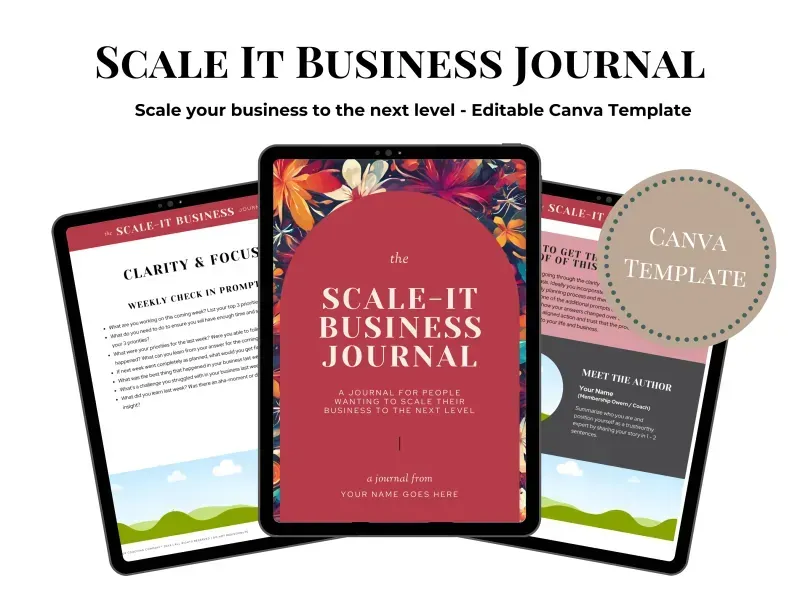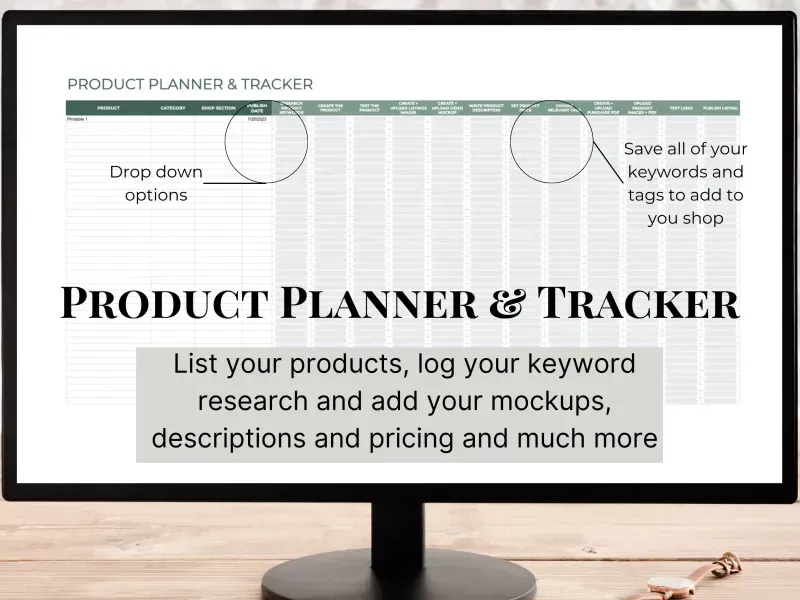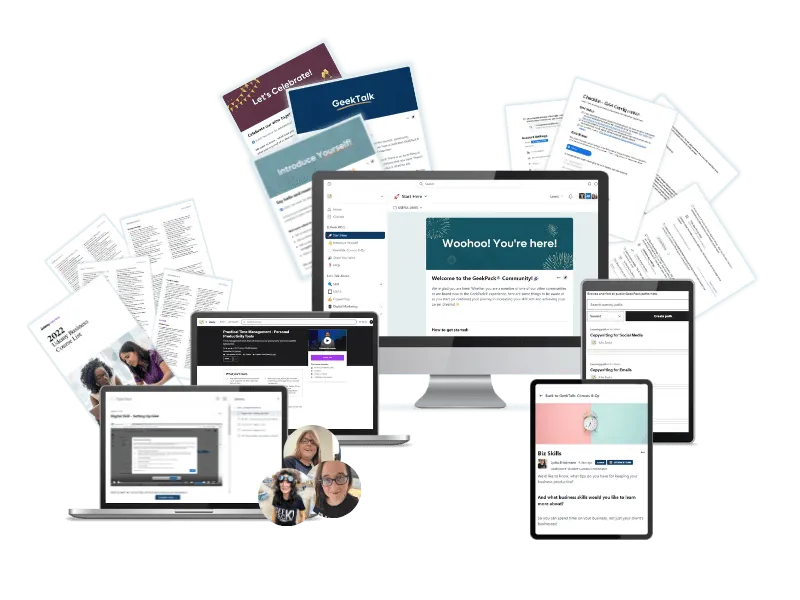WELCOME
Helping Multi-Passionate Introverts & ADHDers
Learn & Monetize new skills, Develop a Business Strategy and Launch your Business
Learn New Skills...
FREE CANVA TOOLKIT

On the Blog...

The Definitive Guide to Becoming a Certified Career Coach
The Definitive Guide to Becoming a Certified Career Coach
Introduction
In today's rapidly evolving job market, individuals are increasingly seeking guidance and support to navigate their career paths and achieve professional success. Career coaching has emerged as a valuable resource for individuals looking to clarify their career goals, overcome challenges, and make informed decisions about their professional futures. In this comprehensive guide, we will explore the world of career coaching, from its definition and growing demand to the purpose of this guide in helping aspiring career coaches embark on their journey
A. Definition of Career Coaching
Career coaching is a collaborative process between a trained professional, known as a career coach, and an individual seeking guidance in their career development. It involves assessing the individual's skills, interests, values, and goals, and providing personalized guidance and support to help them achieve their career objectives. Career coaches employ various coaching techniques, assessments, and exercises to assist clients in identifying career paths, enhancing job search strategies, advancing in their current roles, or transitioning to new opportunities.
B. Growing Demand for Career Coaching in Today's Workforce
The modern workforce is characterized by rapid technological advancements, changing job roles, and increasing competition. As a result, individuals often face uncertainty, challenges, and a need for continuous professional development. In response to these dynamics, the demand for career coaching has surged, as individuals seek personalized guidance and support to navigate their career journeys successfully. Employers also recognize the value of career coaching in fostering employee engagement, retention, and performance, leading to a growing demand for coaching services within organizations.
C. Purpose of the Guide
The purpose of this guide is to provide aspiring career coaches with a comprehensive overview of career coaching, from its fundamental concepts to practical insights and strategies for success. Whether you are considering a career in coaching, currently undergoing training, or seeking to enhance your coaching practice, this guide aims to equip you with the knowledge, resources, and inspiration needed to thrive in the field of career coaching. Through a structured exploration of key topics, case studies, and best practices, we will empower you to embark on a fulfilling career coaching journey and make a positive impact on the lives and careers of others.

Why Career Coaching Matters
In a fast-paced and ever-changing professional landscape, individuals are increasingly recognizing the importance of finding career satisfaction and fulfillment. Career coaching plays a crucial role in helping individuals navigate their career paths, achieve their professional goals, and ultimately find meaning and fulfillment in their work. In this section, we will explore the significance of career coaching in fostering career satisfaction, individual success, and guiding clients towards meaningful work.
A. Importance of Career Satisfaction and Fulfillment
Career satisfaction goes beyond simply having a job; it encompasses finding work that aligns with one's values, interests, and passions. Research has consistently shown that individuals who are satisfied with their careers are more likely to experience higher levels of overall well-being, job satisfaction, and life satisfaction. Conversely, those who feel unfulfilled or disengaged in their work may experience negative impacts on their mental health, productivity, and quality of life.
Career coaching helps individuals identify their strengths, values, and interests, allowing them to explore career options that align with their unique preferences and aspirations. By providing guidance and support throughout the career exploration process, career coaches empower clients to make informed decisions about their professional futures and pursue paths that bring them fulfillment and happiness.
B. Impact of Career Coaching on Individual Success and Well-being
The impact of career coaching extends beyond just finding a job; it encompasses fostering individual success and overall well-being. Studies have shown that individuals who engage in career coaching are more likely to experience positive outcomes, such as higher levels of job satisfaction, career advancement, and financial success. Additionally, career coaching can help individuals develop essential skills such as goal-setting, decision-making, and self-confidence, which are critical for long-term success in today's competitive job market.
Moreover, career coaching can have significant benefits for mental health and well-being. By providing a supportive and non-judgmental environment, career coaches help clients navigate career transitions, manage job-related stress, and cultivate resilience in the face of challenges. Through personalized coaching sessions, individuals gain clarity, direction, and a sense of control over their professional lives, leading to greater overall happiness and life satisfaction.
C. Role of Career Coaches in Guiding Clients Towards Meaningful Work
Career coaches play a pivotal role in guiding clients towards meaningful work by helping them uncover their passions, values, and purpose. By facilitating self-reflection and exploration, career coaches assist clients in identifying career paths that align with their personal values and aspirations. This process enables individuals to pursue work that is not only financially rewarding but also personally fulfilling and meaningful.
Furthermore, career coaches help clients navigate career transitions, overcome obstacles, and seize opportunities for growth and development. Through a combination of coaching techniques, assessments, and action planning, career coaches empower clients to take proactive steps towards achieving their career goals and finding fulfillment in their work.
In summary, career coaching matters because it empowers individuals to find career satisfaction, achieve success, and pursue meaningful work that aligns with their values and aspirations. By providing guidance, support, and encouragement, career coaches play a vital role in helping clients navigate their career journeys and create fulfilling professional lives.
Understanding Career Coaching
Career coaching is a specialized form of coaching focused on guiding individuals through their career development journey, helping them achieve their professional goals, and ultimately find fulfillment and success in their chosen careers. In this section, we will delve into the definition of career coaching, its objectives, how it differs from other forms of coaching, and the skills and qualities that make career coaches effective in their practice.
A. Defining Career Coaching and Its Objectives
Career coaching involves a collaborative partnership between a trained professional, known as a career coach, and an individual seeking guidance and support in their career endeavors. The primary objective of career coaching is to assist clients in identifying and achieving their career goals, whether it's exploring new career paths, advancing in their current roles, or navigating career transitions.
Career coaches work with clients to assess their skills, strengths, values, and interests, helping them gain clarity and direction in their career aspirations. Through personalized coaching sessions, career coaches facilitate self-discovery, goal-setting, action planning, and skill development, empowering clients to make informed decisions about their professional futures and take proactive steps towards achieving their objectives.
B. Differentiating Career Coaching from Other Forms of Coaching
While career coaching shares similarities with other forms of coaching, such as life coaching or executive coaching, it has a distinct focus on career-related issues and objectives. Unlike life coaching, which addresses a broader range of personal and professional goals, career coaching specifically targets career development, job satisfaction, and workplace success.
Similarly, career coaching differs from executive coaching in its target audience and scope. While executive coaching primarily caters to senior-level executives and leaders within organizations, career coaching serves individuals at various career stages, including entry-level professionals, mid-career changers, and aspiring entrepreneurs.
C. Skills and Qualities of Effective Career Coaches
Effective career coaches possess a unique blend of skills, qualities, and expertise that enable them to support and empower clients in achieving their career goals. Some essential skills and qualities of effective career coaches include:
Active listening: Career coaches listen attentively to clients' concerns, goals, and aspirations, demonstrating empathy and understanding.
Communication skills: They communicate clearly and effectively, fostering trust and rapport with clients and facilitating open dialogue.
Empathy and compassion: Career coaches demonstrate empathy and compassion towards clients' experiences, challenges, and emotions, creating a supportive and non-judgmental coaching environment.
Strategic thinking: They analyze clients' career situations, identify challenges and opportunities, and develop strategic action plans to achieve desired outcomes.
Career expertise: Effective career coaches possess a deep understanding of career development theories, job market trends, and industry-specific knowledge, providing valuable insights and guidance to clients.
Coaching techniques: They utilize a variety of coaching techniques, assessments, and exercises to facilitate self-discovery, goal-setting, and skill development in clients.
Accountability and motivation: Career coaches hold clients accountable for their actions, provide encouragement and motivation, and celebrate successes along the career journey.
The Certification Process
Becoming a certified career coach involves completing a structured training program and obtaining certification from accredited organizations or professional bodies. In this section, we will explore the certification process, including an overview of career coaching certification programs, accreditation bodies, and the requirements for certification.
A. Overview of Career Coaching Certification Programs
Career coaching certification programs are designed to provide aspiring career coaches with the knowledge, skills, and competencies necessary to effectively coach individuals in their career development journey. These programs typically cover topics such as career assessment, goal-setting, job search strategies, resume writing, interview preparation, and career transition support.
Certification programs may vary in length, format, and delivery method. Some programs are offered in-person through workshops, seminars, or classroom-based training, while others are available online, allowing participants to complete coursework at their own pace. Additionally, certification programs may offer specialized tracks or electives focusing on specific industries, career stages, or coaching methodologies.
B. Accreditation and Certification Bodies for Career Coaches
Accreditation and certification bodies play a crucial role in maintaining standards of excellence and professionalism within the career coaching industry. These organizations establish criteria for training programs, assess the quality of education and training provided, and grant certification to individuals who meet their standards.
Some well-known accreditation and certification bodies for career coaches include the International Coach Federation (ICF), the Center for Credentialing & Education (CCE), and the Career Development Alliance (CDA). These organizations offer various levels of certification, ranging from entry-level credentials to advanced designations for experienced professionals.
C. Requirements and Eligibility Criteria for Certification
To become certified as a career coach, individuals must meet certain requirements and eligibility criteria established by accreditation and certification bodies. These criteria may include:
Completion of a recognized career coaching certification program: Candidates must successfully complete a training program that meets the standards set forth by accreditation bodies. This program may include coursework, practicum hours, and assessments to demonstrate proficiency in coaching competencies.
Coaching experience: Some certification programs require candidates to have a minimum number of coaching hours, either through formal coaching practice or related professional experience.
Continuing education: Certified career coaches may be required to participate in continuing education activities to maintain their certification. This may include attending workshops, webinars, conferences, or completing additional coursework to stay abreast of industry trends and best practices.
Adherence to ethical guidelines: Candidates must agree to abide by ethical guidelines and professional standards established by accreditation bodies, such as the ICF Code of Ethics or the CCE Code of Professional Conduct.
Choosing the Right Certification Program
Selecting the right career coaching certification program is a critical step in your journey to becoming a certified career coach. In this section, we will discuss the factors to consider when choosing a certification program, compare different certification options, and highlight testimonials and reviews from certified career coaches.
A. Factors to Consider When Selecting a Certification Program
Accreditation: Look for certification programs that are accredited by reputable organizations such as the International Coach Federation (ICF) or the Center for Credentialing & Education (CCE). Accredited programs adhere to industry standards and are recognized for their quality and rigor.
Curriculum: Evaluate the curriculum of each certification program to ensure it covers relevant topics and competencies. Consider whether the program offers comprehensive training in areas such as career assessment, coaching techniques, and professional development skills.
Delivery Method: Consider your preferred learning style and schedule when choosing a certification program. Some programs offer flexible online courses, while others may require in-person attendance at workshops or seminars. Choose a program that aligns with your availability and learning preferences
Faculty and Instructors: Research the qualifications and expertise of the program's faculty and instructors. Look for programs led by experienced career coaches and industry professionals who can provide valuable insights and mentorship.
Practicum and Hands-on Experience: Determine whether the certification program includes opportunities for hands-on practice and experiential learning. Practicum hours and supervised coaching sessions are valuable for gaining practical skills and confidence as a career coach.
Cost and Investment: Consider the cost of the certification program and weigh it against the value it provides. Compare tuition fees, payment options, and any additional expenses such as course materials or examination fees. Remember that investing in a reputable certification program is an investment in your future career success.
B. Comparison of Different Certification Options
Research and compare different certification options to find the program that best meets your needs and goals. Consider factors such as accreditation, curriculum, delivery method, faculty expertise, and cost when making your decision. Create a spreadsheet or checklist to compare key features of each program and make an informed choice.
C. Testimonials and Reviews from Certified Career Coaches
Seek out testimonials and reviews from professionals who have completed the certification program you are considering. Testimonials provide firsthand insights into the quality of the program, the effectiveness of the training, and the impact it has had on graduates' careers. Look for testimonials from certified career coaches who have achieved success in their field and can attest to the value of the certification program.
What to Expect During Training
Embarking on a career coaching certification program is an exciting journey that offers comprehensive training and invaluable experiences. In this section, we'll delve into what you can expect during your training, including the curriculum and coursework, practical experience, and mentorship opportunities.
A. Curriculum and Coursework in Career Coaching Programs
Career coaching certification programs typically feature a robust curriculum designed to equip aspiring coaches with the knowledge, skills, and competencies needed to excel in the field. Here's what you can expect from the coursework:
Foundational Concepts: You'll explore foundational concepts in career development, counseling psychology, and coaching theory. Topics may include career assessment tools, personality assessments, and career exploration techniques.
Coaching Techniques: You'll learn a variety of coaching techniques and methodologies tailored to career coaching. This may include goal-setting strategies, motivational interviewing, action planning, and accountability techniques.
Professional Development: Career coaching programs often include modules on professional ethics, business practices, and client relationship management. You'll gain insights into ethical guidelines for coaches, setting boundaries, and managing client expectations.
Specialized Topics: Depending on the program, you may have the opportunity to explore specialized topics such as resume writing, job search strategies, interview preparation, and career transition coaching.
Practicum Assignments: Many certification programs incorporate practicum assignments or case studies where you'll apply coaching techniques in real-world scenarios. These practical exercises provide hands-on experience and help reinforce learning.
B. Practical Experience and Hands-on Training Opportunities
In addition to coursework, career coaching programs often provide practical experience and hands-on training opportunities to help you develop your coaching skills. Here's what you can expect:
Coaching Sessions: You may participate in supervised coaching sessions with peers or clients to practice your coaching techniques and receive feedback from instructors.
Role-Playing Exercises: Role-playing exercises allow you to simulate coaching scenarios and practice communication, active listening, and problem-solving skills in a supportive environment
Observation and Feedback: You'll have the opportunity to observe experienced coaches in action and receive constructive feedback on your coaching style, approach, and effectiveness.
Fieldwork or Internships: Some programs offer fieldwork or internship opportunities where you can gain practical experience working with clients under the guidance of experienced coaches.
C. Mentorship and Support from Experienced Coaches
Mentorship and support from experienced coaches are invaluable components of career coaching certification programs. Here's how mentorship can enhance your training experience:
One-on-One Guidance: You may have the opportunity to receive one-on-one mentorship from experienced coaches who can provide personalized guidance, advice, and support throughout your training journey.
Group Coaching and Peer Support: Group coaching sessions and peer support networks offer opportunities to connect with fellow students, share experiences, and learn from each other's insights and perspectives.
Access to Resources: Mentors can provide access to resources, tools, and industry insights that can enhance your learning and professional development as a career coach.
Accountability and Encouragement: Mentors can hold you accountable to your goals, provide encouragement during challenging times, and celebrate your successes as you progress through the program.
Building Your Coaching Toolkit
As you embark on your journey to becoming a certified career coach, it's essential to equip yourself with the right tools and resources to support your clients effectively. In this section, we'll explore the components of your coaching toolkit, including essential tools and resources, coaching techniques and methodologies, and the role of technology in your coaching practice.
A. Essential Tools and Resources for Career Coaches
Assessment Tools: Utilize career assessment tools to help clients gain insights into their interests, values, strengths, and personality preferences. Examples include the Myers-Briggs Type Indicator (MBTI), Strong Interest Inventory, and Holland Code.
Goal-Setting Frameworks: Implement goal-setting frameworks such as the SMART (Specific, Measurable, Achievable, Relevant, Time-bound) criteria to help clients clarify their career objectives and create actionable plans for achievement.
Coaching Models: Familiarize yourself with various coaching models and frameworks, such as the GROW (Goal, Reality, Options, Will) model, to structure coaching sessions, facilitate client progress, and foster accountability.
Communication Skills: Develop strong communication skills, including active listening, questioning techniques, empathy, and rapport-building, to establish trust and rapport with your clients and facilitate meaningful coaching conversations.
Career Development Resources: Stay updated on industry trends, labor market information, job search strategies, and career development resources to provide relevant and timely guidance to your clients.
B. Developing Coaching Techniques and Methodologies
Strengths-Based Coaching: Adopt a strengths-based approach to coaching, focusing on leveraging clients' strengths, talents, and abilities to achieve their career goals and aspirations.
Solution-Focused Techniques: Utilize solution-focused techniques to help clients identify and implement practical solutions to overcome challenges, capitalize on opportunities, and achieve desired outcomes.
Motivational Interviewing: Incorporate motivational interviewing techniques to explore clients' motivations, values, and aspirations, enhance their commitment to change, and facilitate goal attainment.
Action-Oriented Strategies: Encourage clients to take action and experiment with new behaviors, strategies, and approaches to achieve their career objectives and overcome obstacles along the way.
Feedback and Accountability: Provide constructive feedback, accountability, and support to help clients stay focused, motivated, and accountable for their progress and actions.
C. Incorporating Technology into Career Coaching Practice
Online Coaching Platforms: Explore online coaching platforms and tools that facilitate virtual coaching sessions, client communication, scheduling, and progress tracking, allowing you to connect with clients regardless of location.
Digital Resources: Leverage digital resources such as career assessment tools, e-books, webinars, and online courses to supplement your coaching sessions and provide additional value to your clients.
Social Media and Networking: Use social media platforms and online networking tools to expand your professional network, share valuable content, and attract potential clients interested in career coaching services.
Client Management Systems: Implement client management systems or customer relationship management (CRM) software to organize client information, track progress, and streamline administrative tasks related to scheduling, invoicing, and documentation.

Navigating the Coaching Industry
As you prepare to enter the career coaching industry, it's crucial to understand the landscape, including the opportunities, challenges, trends, and strategies for success. In this section, we'll explore the dynamics of the coaching industry and provide insights into navigating this dynamic field.
A. Opportunities and Challenges in the Career Coaching Industry
Opportunities:
Growing Demand: With rapid changes in the job market and the increasing emphasis on career development, there is a growing demand for career coaching services across various industries and demographicss
Diverse Client Base: Career coaches have the opportunity to work with a diverse range of clients, including recent graduates, mid-career professionals, executives, career changers, and entrepreneurs, each with unique needs and aspirations.
Flexibility and Autonomy: Career coaching offers flexibility and autonomy, allowing coaches to set their own schedules, work remotely, and tailor their services to meet the needs of their clientss
Challenges:
Market Saturation: The career coaching industry is becoming increasingly crowded, making it challenging for new coaches to stand out and attract clients amidst competition from established practitioners and online platforms.
Credentialing and Regulation:
Lack of standardized credentialing and regulation in the coaching industry can lead to variability in quality and credibility, requiring coaches to navigate credentialing options and build trust with clients.
Client Acquisition:
Acquiring clients can be a significant challenge for new coaches, requiring effective marketing, networking, and branding strategies to attract and retain clients in a competitive market.
B. Trends and Innovations Shaping the Future of Career Coaching
Virtual Coaching: The rise of virtual coaching platforms and technologies enables coaches to connect with clients worldwide, expanding their reach and accessibility beyond traditional geographic boundaries.
Specialized Niches: Coaches are increasingly specializing in niche areas such as executive coaching, leadership development, career transitions, diversity and inclusion, and entrepreneurship, catering to specific client needs and industry demands.
Data-Driven Coaching: Utilizing data analytics and assessment tools, coaches can provide data-driven insights and personalized recommendations to clients, enhancing the effectiveness and outcomes of coaching interventions.
Hybrid Coaching Models: Hybrid coaching models, combining in-person and virtual coaching modalities, offer flexibility and customization, allowing coaches to meet the diverse preferences and needs of their clients.
C. Strategies for Building a Successful Career Coaching Practice
Define Your Niche: Identify your target market, specialization, and unique value proposition to differentiate yourself in the market and attract clients who resonate with your expertise and offerings.
Invest in Professional Development: Continue to invest in your professional development through advanced training, certifications, workshops, and ongoing education to stay updated on industry trends, best practices, and emerging technologies.
Build Your Brand: Develop a strong personal brand, including a professional website, social media presence, and marketing materials that reflect your expertise, credibility, and unique coaching approach.
Network and Collaborate: Network with colleagues, industry professionals, and potential referral partners to expand your professional network, exchange knowledge and resources, and create collaborative opportunities for growth and development.
Deliver Exceptional Results: Focus on delivering exceptional results and value to your clients by providing personalized coaching experiences, tangible outcomes, and ongoing support to help them achieve their career goals and aspirations.
The Impact of Career Coaching
Career coaching has the power to transform lives, guiding individuals towards fulfilling careers, and helping them unlock their full potential. In this section, we'll explore the profound impact of career coaching through success stories, case studies, and research findings.
A. Success Stories and Testimonials from Certified Career Coaches
John's Journey to Executive Leadership:
John, a mid-career professional struggling to advance in his career, sought the guidance of a certified career coach. Through personalized coaching sessions focused on leadership development, communication skills, and strategic career planning, John was able to overcome obstacles, gain confidence, and secure a promotion to an executive leadership position within six months.
Emily's Entrepreneurial Endeavors:
Emily, a creative entrepreneur with a passion for design, was facing challenges in scaling her business and navigating the complexities of entrepreneurship. With the support of her career coach, Emily developed a strategic growth plan, refined her branding and marketing strategies, and expanded her client base, resulting in a 50% increase in revenue and national recognition for her innovative designs.
Mark's Career Transition Success:
Mark, a recent college graduate unsure of his career path, turned to career coaching for guidance. Through career assessments, exploration exercises, and targeted job search strategies, Mark discovered his passion for environmental advocacy and landed a rewarding position with a leading sustainability organization, fulfilling his lifelong dream of making a positive impact on the planets
B. Case Studies of Clients Benefiting from Career Coaching
Sarah's Career Reinvention:
Sarah, a seasoned professional feeling stuck in her current role, enlisted the help of a career coach to explore new opportunities and reignite her passion for work. Through a series of coaching sessions focused on self-discovery, goal setting, and action planning, Sarah successfully transitioned into a new industry aligned with her interests and values, achieving greater job satisfaction and career fulfillment.
David's Leadership Development Journey:
David, a high-potential leader aiming for career advancement, sought career coaching to enhance his leadership skills and executive presence. With the guidance of his coach, David underwent a transformative journey of self-awareness, communication mastery, and strategic career planning, ultimately securing a promotion to a senior management role and earning recognition as a top performer within his organization.
C. Research and Statistics on the Effectiveness of Career Coaching
According to a study published in the International Journal of Evidence Based Coaching and Mentoring, individuals who received career coaching reported higher levels of career satisfaction, confidence, and clarity in their career goals compared to those who did not receive coaching.
The International Coach Federation (ICF) conducted a global survey, revealing that 86% of individuals who engaged in career coaching reported being "very satisfied" with the coaching experience, citing improvements in job performance, work-life balance, and overall well-being.
Research conducted by the Harvard Business Review found that companies investing in career coaching for their employees experienced a significant return on investment, with coaching participants demonstrating increased productivity, engagement, and retention rates.
Conclusion
As we conclude our journey through the definitive guide to becoming a certified career coach, it's essential to reflect on the significance of career coaching certification, the opportunities it presents, and the resources available for aspiring coaches.
A. Recap of the Importance of Career Coaching Certification
Career coaching certification serves as a testament to your expertise, credibility, and commitment to professional excellence. By investing in certification, you gain the knowledge, skills, and confidence needed to guide individuals towards meaningful and fulfilling careers. With certification, you can differentiate yourself in a competitive market, build trust with clients, and unlock doors to new career opportunities.
B. Encouragement for Readers to Pursue their Career Coaching Goals
To those embarking on the journey to become a certified career coach, I offer words of encouragement and support. Your decision to pursue career coaching is a testament to your passion for helping others thrive in their professional lives. Embrace the challenges, seize the opportunities, and never underestimate the impact you can make in transforming careers and lives. Remember that every step you take towards certification brings you closer to realizing your dreams and making a positive difference in the world.
C. Resources for Further Exploration and Support
To continue your career coaching journey, I recommend exploring additional resources and support networks tailored to aspiring and practicing coaches. Consider joining professional organizations such as the International Coach Federation (ICF) or the Career Development Alliance (CDA) to connect with like-minded professionals, access valuable resources, and stay updated on industry trends. Additionally, seek out mentorship opportunities, attend workshops and conferences, and continue investing in your professional development to enhance your coaching skills and expand your knowledge base.
Remember that the path to becoming a certified career coach is a rewarding and fulfilling one, filled with opportunities for growth, learning, and making a positive impact. Embrace the journey, stay focused on your goals, and never underestimate the transformative power of career coaching in shaping the futures of individuals and organizations alike.
Learn more about becoming a Certified Career Coach here:

** Blog post may contain affiliate links
FREE DOWNLOAD
Headline that hooks people in, gets them excited and makes them want to sign up.
© Copyright 2024 All In One Digital Hub. | Privacy Policy | Terms & Conditions | Affiliate Disclosure






Facebook
Pinterest